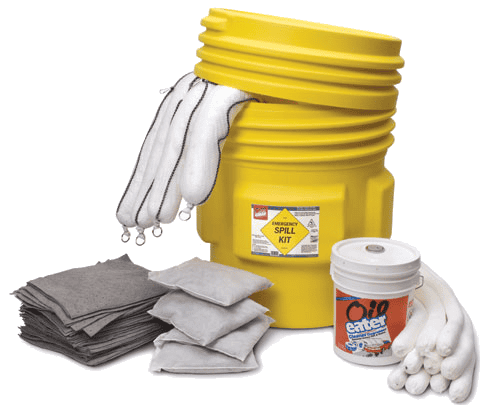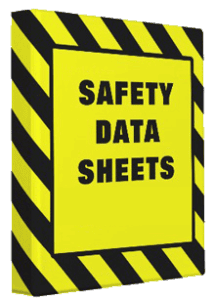
HAZARDOUS SPILLS
All spills – even relatively small spills – of hazardous materials can contaminate soil and drinking water resources as well as endanger our lakes, rivers, and streams. Small, ongoing drips, for example, can add up to a lot of spilled material over time. Spills onto soil and gravel are a particular threat to groundwater. There are many potential spill sources on a timber harvesting site, primarily related to the equipment and machinery used in the operation. Pennsylvania’s timber harvesters need to be tuned in to all spill possibilities and know what to do if a spill occurs. Prevention through maintenance, preparation for spill cleanup, and reporting should be top priorities.
The Pennsylvania Code at 25 § 91.33 under the authority of the Pennsylvania’s Clean Streams Law requires that DEP be notified “immediately” when there is an accident or incident in which a toxic substance or other substance that could cause pollution is discharged into “waters of this Commonwealth.” Furthermore, the person responsible for the discharge must:


- Notify known downstream users of the waters if reasonably possible to do so.
- Immediately take or cause steps to be taken to prevent injury to downstream users of the waters.
- Remove any residual substances from the ground and waters of the Commonwealth within 15 days from the incident.
Chapter 91 regulations do not include a threshold on when a spill or pollution incident must be reported to DEP. Always exercise caution and contact DEP whenever there is a potential for a spill containing pollutants to enter waters of the Commonwealth. If DEP determines that a spill or incident has resulted in pollution and the person responsible has not notified DEP immediately, DEP may, under its legal authority, impose civil penalties up to $10,000 per day for failure to notify.
ADDITIONAL RESOURCES:
- Report an Incident to DEP [1-800-541-2050]
- Reporting Requirements for Spills and Pollution under Pennsylvania’s Clean Streams Law [Fact Sheet]
- EPA Priority Pollutants
- Preparedness, Prevention, and Contingency (PPC) Plan Template for Timber Harvesting Operations [Required Form]
- Best Practices for Spills
- PA Bureau of Forestry Spill Kit Requirements
- New Pig [Spill Kit Supplier]
- Grainger Industrial Supply [Spill Kit Supplier]
- HalenHardy [Spill Kit Supplier]
Disclaimer: The material and resource links provided on this site are for informational use only, and should neither replace the advice of qualified manufacturer experts, legal professionals, or regulatory authorities, nor be taken as recommendations, endorsements legal advice, or substitution for regulatory compliance. Use this information at your own risk, and always be sure to consult with an expert. This Site contains information and content from third parties. Information contained herein regarding any specific person, commercial product, process, or service by trade name, trademark, manufacturer, or otherwise, does not constitute or imply its endorsement, recommendation, or favoring by the Pennsylvania SFI Implementation Committee.

